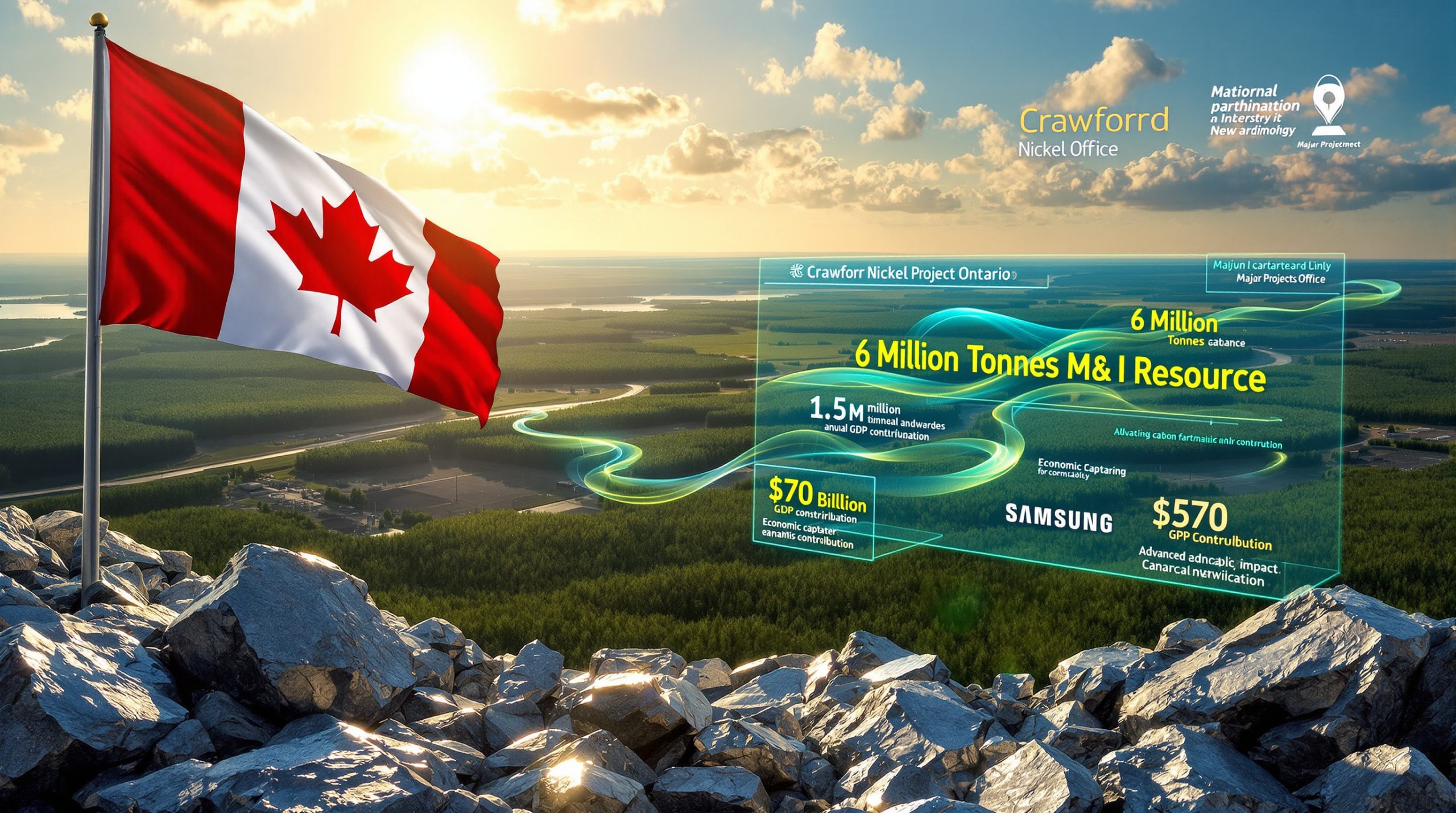What is Happening with AVZ Minerals' Arbitration Against the DRC?
AVZ Minerals has officially resumed international arbitration proceedings against the Democratic Republic of Congo (DRC) following a suspended period that expired on June 23, 2025. This critical development comes after what the company describes as a complete lack of engagement from Congolese government officials during the suspension timeframe.
The arbitration is taking place through the International Centre for Settlement of Investment Disputes (ICSID), an institution under the World Bank Group specifically designed to handle investor-state disputes. This particular case involves AVZ subsidiaries and the DRC government in a high-stakes battle over mineral rights.
At the center of this dispute is the Manono Project, considered one of the world's largest hard rock lithium deposits and a potentially crucial source for battery materials in the growing electric vehicle market.
Legal analysts note this case reflects a troubling pattern of deteriorating investor-state relations in resource-rich jurisdictions, particularly in countries pursuing resource nationalism policies. Similar precedents include the Tenke Fungurume Mining case from 2019, where the DRC government also revoked mining licenses, setting the stage for the current dispute climate.
Why Did AVZ Minerals Initiate Legal Action Against the DRC?
The Dispute Over the Manono Lithium Project
The conflict centers on AVZ Minerals' claims to the Manono lithium project, one of the world's most significant hard rock lithium deposits. The company maintains it holds a 75% majority stake in Dathcom Mining, the joint venture established to develop the project, along with legal claims to the Manono Project under mining permit PR13359, which was formally awarded by the DRC Ministry of Mines in May 2022.
According to mining policy analysts, "DRC's license revocation patterns signal a resource nationalism resurgence" that has become increasingly common across mineral-rich African nations. This permit, governed under the DRC's Mining Code of 2018, represents the legal foundation for AVZ's claims to develop what could become a transformative asset in the global lithium supply chain.
The dispute mirrors the 2023 Kamoa-Kakula copper project renegotiation, which demonstrated similar state-investor tensions in the country's mining sector evolution. These parallels suggest a pattern of challenging foreign investment agreements after initial project development phases.
Timeline of the Legal Proceedings
The ICSID proceedings were temporarily paused until June 23, 2025, following intervention from the US government, which encouraged creating a more conducive environment for potential settlement discussions. This suspension was intended to allow both parties to negotiate without the pressure of ongoing arbitration.
However, according to AVZ Minerals' official statements, the DRC government failed to participate in any meaningful discussions during this suspension period, effectively wasting the opportunity for amicable resolution. This lack of engagement prompted AVZ to formally resume the arbitration process immediately after the suspension period expired.
The company's legal team has meticulously documented the chronology of events since receiving the mining permit in 2022, building a case that centers on alleged violations of bilateral investment treaties and international investment law principles.
How Are the Arbitration Proceedings Progressing?
ICSID Arbitration Resumption
With the suspension period now expired, AVZ Minerals has taken decisive steps to resume the ICSID arbitration proceedings. The company is specifically seeking to hold the DRC accountable for alleged non-compliance with injunctions from Procedural Order n°3, filing a new application with the ICSID Tribunal to address these concerns.
The arbitration is proceeding under ICSID's comprehensive rules that govern the resolution of legal disputes between international investors and states. According to ICSID specialists, "DRC's non-compliance triggers Article 54 enforcement mechanisms," which could potentially allow AVZ to enforce any favorable ruling across multiple jurisdictions where the DRC holds assets.
Procedural Order n°3 contains specific injunctive relief granted to AVZ earlier in the proceedings, and the company's new application aims to enforce compliance with these directives while the broader case continues. The technical aspects of these proceedings involve complex jurisdictional questions and enforcement mechanisms under international investment law.
Parallel ICC Proceedings Against Cominière
Simultaneously, AVZ Minerals is pursuing separate proceedings through the International Chamber of Commerce (ICC) against La Congolaise d'Exploitation Minière (Cominière). In a significant development in June 2025, the ICC tribunal rejected Cominière's request to bifurcate (split) the arbitration proceedings.
This rejection of bifurcation, which falls under ICC Rules Article 39, means the tribunal will hear both jurisdictional questions and the substantive merits of the case concurrently rather than in separate phases. An ICC arbitrator noted that "bifurcation denials indicate strong prima facie evidence," suggesting AVZ's claims have sufficient merit to warrant a comprehensive hearing.
This procedural victory for AVZ follows the earlier CMOC v. DRC case from 2022, which resulted in a $2 billion ICC award for license revocation under similar circumstances. The parallel proceedings strategically target both the state actor (through ICSID) and the state-owned mining entity (through ICC), maximizing AVZ's legal leverage.
What Financial Implications Have Emerged from the Dispute?
The €39.1 Million Award Against Cominière
In a substantial early victory for AVZ Minerals, an ICC tribunal ordered Cominière to pay €39.1 million (approximately $42.4 million based on March 2025 forex rates) plus interest to AVZ in March 2025. This significant award resulted from Cominière's failure to comply with emergency orders related to alleged breaches of the Dathcom joint venture agreement (JVA) concerning the Manono lithium project.
The interest on this award is calculated using the ICC's standard methodology, which typically applies a rate of 5% above the European Central Bank rate. This represents a substantial financial liability for the state-owned Cominière and, by extension, the DRC government.
This award stems from emergency arbitrator powers specifically designed to prevent irreparable harm during the arbitration process. AVZ successfully demonstrated that Cominière's actions threatened its substantial investment, which included a 2021 capital raise of AUD$25 million specifically earmarked for Manono permitting process and development activities.
Potential Economic Impact of the Dispute
The ongoing legal battle has significant implications for both AVZ Minerals and the global lithium market. The Manono project, with its estimated 400 million tonne resource at an impressive 1.65% Li₂O grade, represents a substantial lithium resource that could play an important role in meeting growing global demand for battery materials.
Market analysts have warned that "DRC disputes delay critical EV supply chain projects" at a time when battery manufacturers and automakers are scrambling to secure long-term lithium supplies. The Manono deposit has the potential to supply materials for approximately 700,000 electric vehicle batteries annually once at full production.
For AVZ shareholders, the dispute has created significant uncertainty, with the company's market capitalization fluctuating based on legal developments rather than operational progress. Meanwhile, the DRC risks damaging its reputation among mining investors precisely when it seeks to capitalize on its vast critical minerals outlook essential for the global energy transition.
What is the Strategic Importance of the Manono Project?
Geological Significance of the Deposit
The Manono lithium project is recognized by the Geological Survey of the DRC as the country's third-largest hard rock lithium deposit, representing one of the world's premier undeveloped lithium resources. Its exceptional quality makes it particularly valuable in the competitive global lithium market.
Battery materials consultants have highlighted that "Manono's low-iron spodumene reduces processing costs" compared to many competing deposits. This technical advantage stems from the deposit's unique mineralogy, which features spodumene-dominated pegmatite with negligible potassium content, reducing potential processing complications.
The deposit's grade and quality compare favorably with benchmark operations like Australia's Greenbushes mine, long considered the gold standard for hard rock lithium deposits. With lithium demand projected to triple by 2030, primarily driven by electric vehicle battery production, Manono represents a strategically vital resource in the global energy transition.
Investment and Development Potential
Despite the ongoing legal disputes, AVZ Minerals has expressed continued interest in developing the project. The company has reaffirmed its openness to discussions regarding the project's future, emphasizing its claimed majority stake in Dathcom and legal rights to the Manono Project.
The deposit's development would require approximately $545 million in initial capital expenditure based on AVZ's definitive feasibility study, but would generate an estimated $4.1 billion in revenue over its projected 20-year mine life. The economic benefits would extend beyond direct mining operations to include:
- Local employment creation (estimated 800+ permanent positions)
- Infrastructure development in the Manono region
- Significant tax revenue for the DRC government
- Downstream processing opportunities
- Supply chain security for battery manufacturers
These potential benefits make resolution of the dispute particularly urgent, as delays impact not only AVZ and the DRC but also the broader lithium supply chain at a critical juncture in the global energy transition.
What Happens Next in the Arbitration Process?
Potential Outcomes of the ICSID Proceedings
The resumed ICSID arbitration could result in several potential outcomes, including financial compensation for AVZ Minerals, confirmation of mining rights, or a negotiated settlement between the parties. According to World Bank data from 2024, ICSID cases average 3.6 years in duration, suggesting this dispute may continue for some time.
The ICSID Convention's Article 53 establishes the finality of arbitration awards, while Article 54 provides mechanisms for enforcement. These provisions give ICSID awards particular strength in international law, as demonstrated in cases like MTD v. Chile (2005), where ICSID awards were successfully enforced through bilateral treaties despite initial resistance.
The tribunal will assess several key factors in determining its ruling:
- Compliance with DRC mining law and regulations
- Adherence to bilateral investment treaty provisions
- Evidence of expropriation without compensation
- Demonstration of damages and their quantification
- Good faith compliance with procedural orders
The outcome will establish important precedents for resource investment protection in the DRC and potentially across the African mining sector.
Prospects for Settlement
Despite resuming legal proceedings, AVZ Minerals has indicated it remains open to discussions with the DRC government. However, the company's decision to restart arbitration suggests limited confidence in reaching an amicable resolution in the immediate future.
Any settlement would likely need to address several core issues:
- Recognition of AVZ's legal rights to the Manono project
- Compensation for delays and legal costs incurred
- Clear ownership structure moving forward
- Stable fiscal and regulatory terms
- Transparent process for project development
The arbitration process itself sometimes creates leverage that facilitates settlement, as parties reassess the risks of an adverse ruling against the certainty of a negotiated resolution. However, the DRC's historical approach to similar disputes suggests continued resistance rather than compromise may be more likely.
How Does This Case Reflect Mining Investment Challenges in the DRC?
Resource Nationalism Concerns
The dispute highlights ongoing concerns about resource nationalism and investment security in the DRC, which holds some of the world's richest mineral deposits but has faced criticism regarding governance and regulatory predictability in its mining sector.
According to the World Bank's Investment Protection Index (2024), the DRC ranks 160th out of 190 countries, reflecting significant concerns about contract enforcement and investment protection. This poor ranking comes despite mining contributing approximately 32% of the DRC's GDP while generating 71% of the country's investment disputes.
Resource governance scholars have observed that "license revocations increased 300% since the 2020 cobalt boom," suggesting a pattern of state intervention that correlates with rising commodity prices. The DRC Mining Code's Article 71 grants the state broad powers for license revocation, creating inherent uncertainty for international investors.
Previous expropriation cases, including Anvil Mining (2012) and First Quantum (2022), established troubling precedents that appear to be repeating with AVZ Minerals. These cases demonstrate the challenges foreign investors face in a jurisdiction where regulatory frameworks exist but enforcement remains inconsistent and sometimes politically motivated.
Impact on Future Mining Investment
The outcome of this high-profile case could significantly influence investor confidence in the DRC's mining sector, potentially affecting future foreign direct investment in the country's substantial mineral resources, particularly those critical to the global energy transition.
The DRC's vast copper, cobalt, and lithium reserves place it in a strategically crucial position for the renewable energy and electric vehicle revolution. However, persistent investment disputes risk driving capital toward more stable jurisdictions despite potentially higher operating costs.
Investment analysts suggest three potential scenarios depending on the arbitration outcome:
- Favorable AVZ ruling with DRC compliance: Could restore investor confidence and unlock new investment in DRC critical minerals
- Favorable AVZ ruling with DRC non-compliance: Likely to accelerate capital flight and drive risk premiums higher for remaining projects
- Ruling favoring DRC position: Could embolden further resource nationalism and restructuring of existing agreements
The case represents more than just a company-specific dispute—it has become a litmus test for the DRC's commitment to stable investment frameworks at a pivotal moment in global mineral markets. Furthermore, this case may have significant implications for other investors considering Congo lithium investment opportunities, particularly as new government permit orders could reshape the global mining landscape.
FAQ: AVZ Minerals' Arbitration Against the DRC
What is the core dispute between AVZ Minerals and the DRC?
The dispute centers on AVZ Minerals' claims to the Manono lithium project, one of the world's largest hard rock lithium deposits, where the company asserts it holds 75% majority ownership rights through Dathcom Mining and legal claims under mining permit PR13359, which has validity until 2047 under DRC law.
What are the key legal forums involved in this dispute?
Two main legal forums are handling different aspects of the case:
- The International Centre for Settlement of Investment Disputes (ICSID) for proceedings against the DRC government, focusing on alleged violations of bilateral investment treaties and international law
- The International Chamber of Commerce (ICC) for proceedings against Cominière, centered on breaches of the joint venture agreement and contractual obligations
What prompted AVZ Minerals to resume arbitration proceedings?
The company resumed arbitration after a temporary suspension period ended on June 23, 2025, during which AVZ claims the DRC government failed to engage in settlement discussions despite encouragement from the US government to create conditions for resolution.
What was the significance of the ICC tribunal's recent decision?
The ICC tribunal rejected Cominière's request to bifurcate (split) the arbitration proceedings, allowing the case to proceed as a unified action rather than addressing jurisdictional questions separately from the merits of the case. This technical decision means the hearing of jurisdictional and substantive issues will happen concurrently, potentially accelerating the proceedings.
What financial award has already been granted in this dispute?
In March 2025, an ICC tribunal ordered Cominière to pay €39.1 million (approximately $42.4 million) plus interest to AVZ Minerals for failing to comply with emergency orders related to the Dathcom joint venture agreement. This represents an early victory for AVZ but addresses only a portion of its overall claims.
How does the Manono project compare to other global lithium resources?
The Manono project features approximately 400 million tonnes of lithium resource at an average grade of 1.65% Li₂O, placing it among the top tier of global hard rock lithium deposits. Its low iron content makes it particularly desirable for battery-grade lithium production, potentially reducing processing costs compared to competitors.
What legal principles will guide the ICSID tribunal's decision?
The tribunal will consider:
- Provisions of applicable bilateral investment treaties
- Customary international law on foreign investment protection
- The DRC's 2018 Mining Code and associated regulations
- Evidence of fair and equitable treatment violations
- Documentation of any expropriation without compensation
What timeframe can be expected for resolution of this dispute?
Based on ICSID statistics, international arbitrations of this complexity typically require 3-5 years from filing to final award. Given the case has already been underway for over two years, a resolution might be expected within the next 12-36 months, though enforcement could extend the timeline further.
Disclaimer: This article contains analysis of an ongoing legal dispute with uncertain outcomes. The information presented is based on publicly available data and expert analysis as of June 2025, but circumstances may change as proceedings continue. This content should not be considered legal advice or investment guidance.
Ready to Spot the Next Big Mineral Discovery?
Discover how significant mineral discoveries like Manono can lead to substantial returns by exploring Discovery Alert's dedicated discoveries page, powered by their proprietary Discovery IQ model that delivers real-time alerts on ASX mineral announcements and turns complex data into actionable insights. Visit https://discoveryalert.com.au/discoveries/ to learn how you can gain a market-leading advantage in mineral investment.




